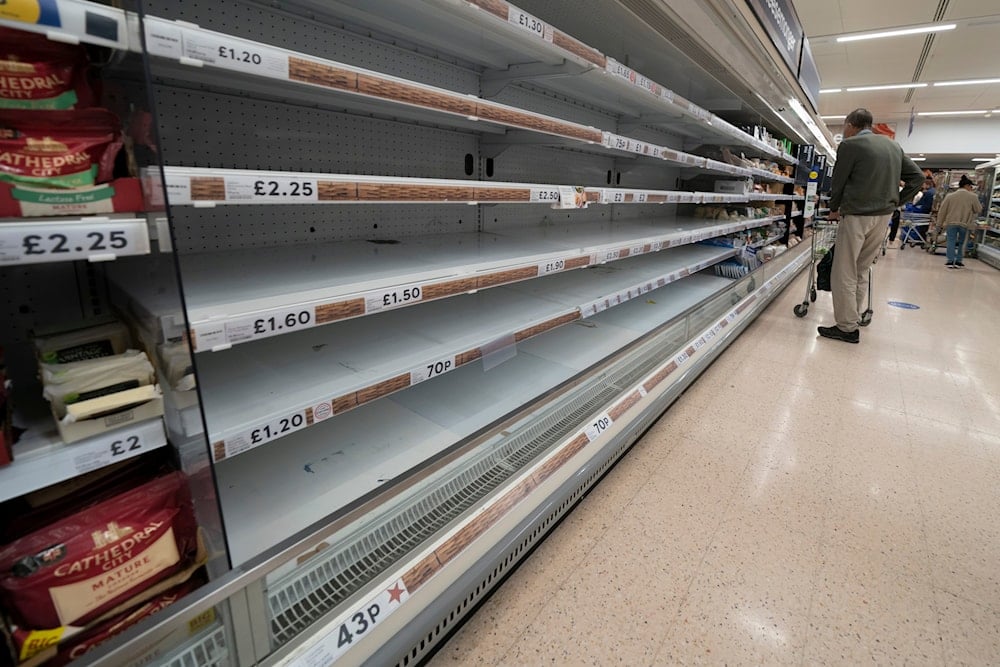Top grocery brands fueling ‘greedflation’: UK watchdog
Prominent brands have been raising prices faster than their incurred costs, the Competition and Markets Authority in the UK stated.
-

A view of empty shelves at a Tesco supermarket in Manchester, England, Sunday, September 12, 2021. (AP)
Numerous well-known grocery suppliers have been raising prices beyond their production costs, leading to what is described as 'greedflation,' as outlined in a recent report by the UK Competition and Markets Authority (CMA).
The term refers to deliberate price hikes by companies aiming to capitalize on inflation and generate excessive corporate profits.
The study reveals that in the past two years, approximately three-quarters of branded suppliers in items like infant formula, baked beans, mayonnaise, and pet food have boosted their unit profitability, thereby contributing to elevated food price inflation.
Within the food and groceries industry, the CMA identified that substantial inflation is primarily attributed to escalating input costs, notably in energy and crucial agricultural commodities such as fertilizer.
Sarah Cardell, the chief executive of the CMA, emphasized the significance of addressing competition issues amid the considerable strain food price inflation has imposed on household budgets. She pointed out that while leading brands have generally increased prices beyond their cost hikes, own-label products often offer more economical alternatives.
Two companies hold 85% market share in baby formula
The CMA expressed its highest concerns about baby formula among the ten product categories investigated, noting a 25% price increase in the last two years, with two companies holding an 85% market share.
The regulator suggested that families could achieve substantial savings of over £500 in the first year of a baby's life by opting for more affordable formula options. “Unlike other products examined, there is little evidence of parents switching to cheaper branded options as prices have risen and [there’s] very limited availability of own-brand alternatives,” said Cardell.
The CMA report indicated that food price inflation in the UK continues to be at historically high levels, despite falling to 10.1% in October 2023.
2 million UK households in poverty
Earlier last month, according to the Joseph Rowntree Foundation (JRF) charity in the UK, around 2 million households have reached a point where they are turning their fridges off to save money amid a “frightening” level of hardship for the first time since May.
The JRF stated that four out of five households on universal credit were going without food, turning off the heat, not replacing worn-out clothing, and resorting to “desperate measures”.
Its latest cost of living crisis tracker survey revealed that back in October, around 2.8 million UK low-income households accumulated debt to pay for food, while a third sold belongings for cash, and one in six used community “warm rooms”.
The JRF noted that although the government allocated over £12 billion for the cost of living support, 7.3 million households have still gone without food and other essentials in the last six months.
It is reported that ministers could freeze working-age benefits from next April, which would help procure billions for the Treasury, but leave about 9 million households with a loss of an estimated average of £460.
Read next: UK rents soar in deprived areas putting vulnerable communities at risk

 3 Min Read
3 Min Read








